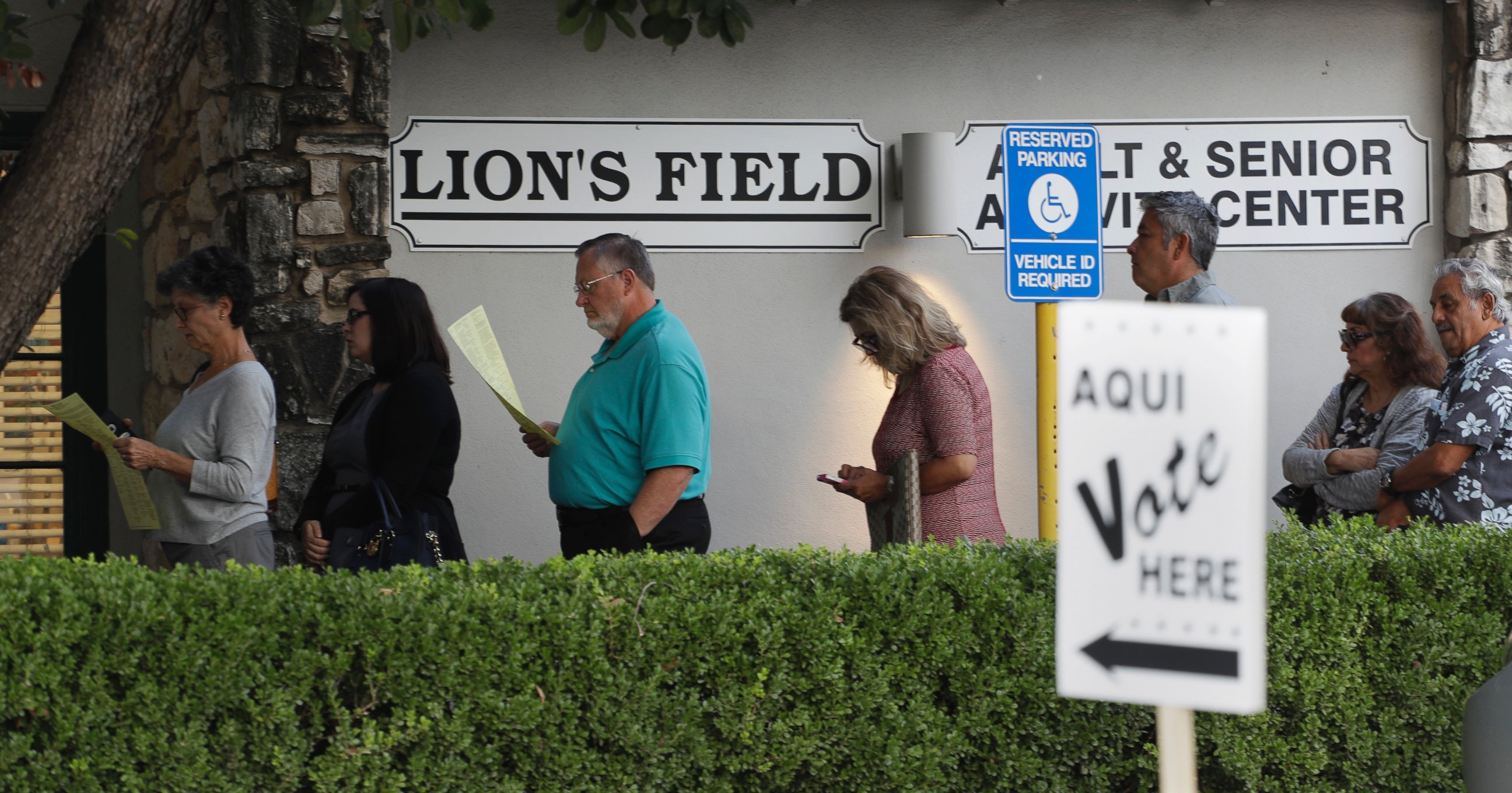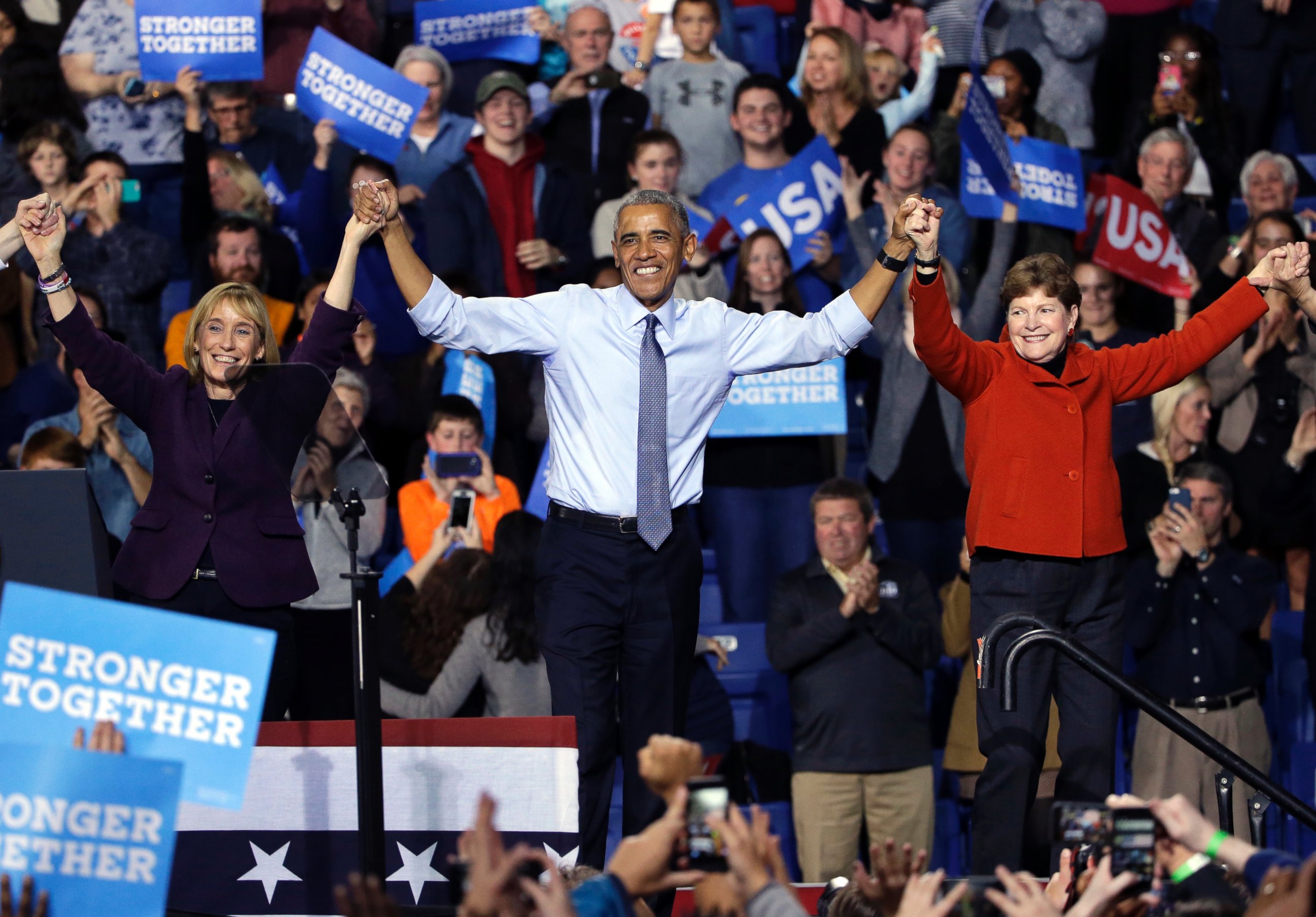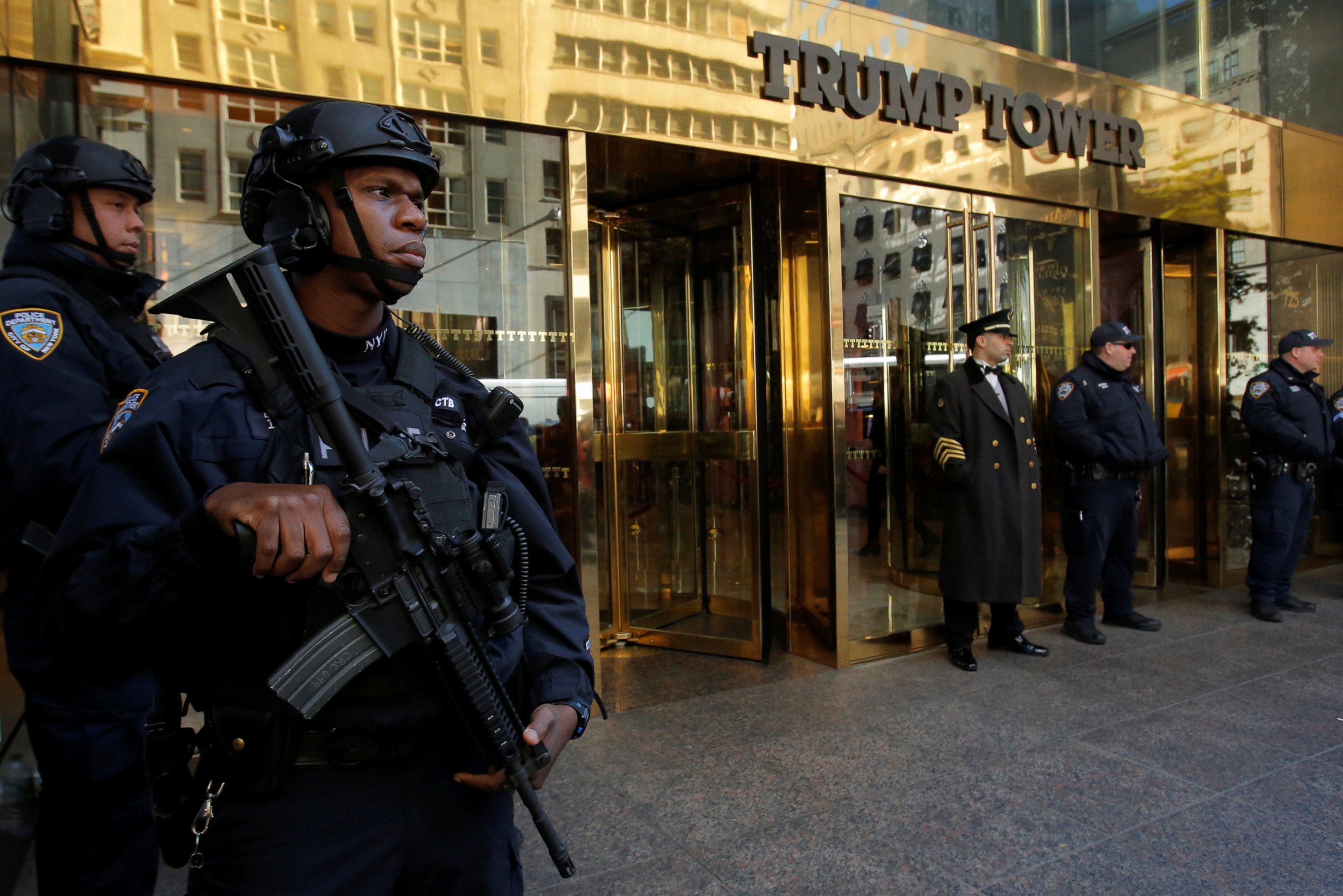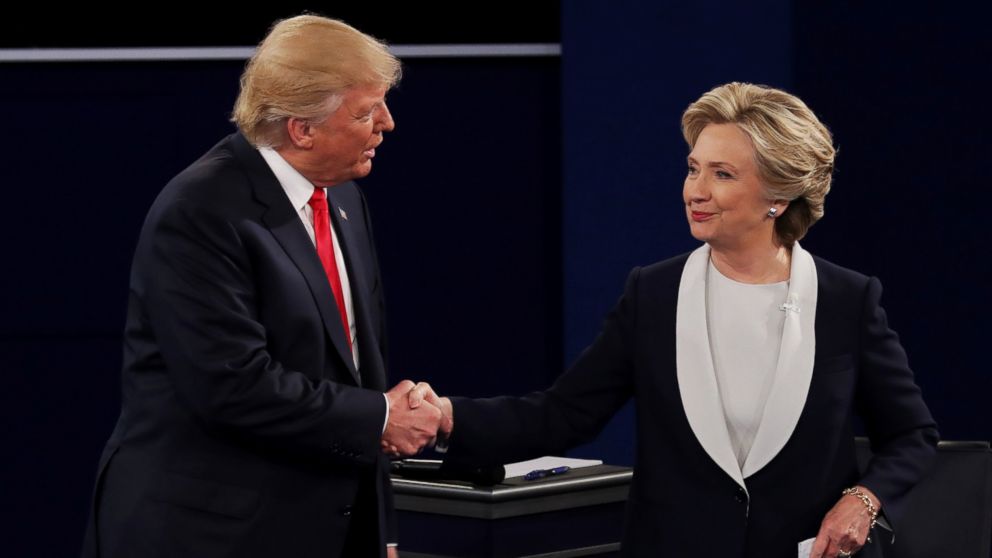10 Storylines to Watch on Election Day
— -- It’s a big day for America.
The long-awaited election of 2016 is finally here, and it could be a historic one for a number of reasons. The United States could elect its first female president, Republicans could take back the White House after two Democratic terms, and there could be record voter turnout. And the major candidates’ election night parties will both be in New York City.
Here are 10 of the biggest storylines to watch as the results come in.
1. Who Wins This Tumultuous Race?
Hillary Clinton and Donald Trump have been slugging it since they became their respective parties’ nominees this summer, but the presidential race has been going on for well over a year.
The contest between Clinton and Trump has been widely perceived as one of the most negative and turbulent in recent memory.
While Clinton had a double-digit lead nationally at one point last month, that lead shrank, and some polls had Trump edging in front roughly a week out from Election Day.

2. What’s the Margin of Victory?
Because of the contentious nature of the presidential race, supporters on both sides are hoping that their candidate wins by a large enough margin to declare a mandate for the next four years.
Given the close nature of the national polls going into Election Day, the chances for a blowout are slimmer than at earlier points in the race, but die-hards can still dream.
3. Is There Any Vote Rigging Reported?
Trump has repeatedly claimed that the election process is “rigged” and urged supporters to monitor activity at polling places to ensure that there is no voter fraud.
Several federal courts issued orders to both campaigns saying that they may not tell supporters to take any such steps on Election Day, but that hasn’t stopped Trump from stoking the fires and pre-emptively raising questions about the veracity of the election results.
4. Will the Loser Accept the Results?
Along those lines, Trump has suggested that he may not accept the election results if they are not what he wants.
During the third Clinton-Trump debate, when asked if he would accept the results, he said he “will look at it at the time.” At a rally in Ohio the next day, he said, “I will totally accept the results of this great and historic presidential election — if I win.”
By contrast, Clinton said that she will accept the results of the election either way.
5. How Do Third-Party Candidates Fare?
National polls had Libertarian candidate Gary Johnson and Green Party candidate Jill Stein polling in the low single digits in the final days before Election Day, and while they may not have much of an impact as a result, there is another way a third-party candidate could make history this time around.
Evan McMullin, a conservative anti-Trump independent, will appear on the ballot in only 11 states, so he has no chance of winning the election. But he has seen a swell of support in Utah — a normally Republican stronghold — whose large Mormon population has been reluctant to back Trump. If McMullin_wins the state, he will be the first third-party candidate to win electoral votes since 1964.
6. How Telling Was Early Voting?

As of early Monday evening, over 43 million people had cast their ballots in this election, according to Associated Press data. That figure is 93.5 percent of 2012’s early voting total.
Early voting numbers from 2012 have been surpassed in the battleground states of Florida, Georgia, Virginia, North Carolina and Nevada.
One of the most staggering statistics comes from Florida, where more early ballots were cast this year than total ballots in 2000.
Clinton campaign manager Robby Mook was optimistic about early voting numbers in some key swing states.
“We saw just eye-popping turnout in Florida over the last two days, particularly in our strongholds of southern Florida, North Carolina and elsewhere, so we’re very encouraged, very positive.”
7. Which Demographic Groups Had an Impact?
Political experts were reading the tea leaves left in early voting states and checking certain demographic turnout trends for an indication of how things will go today.
Only a handful of early voting states publicly release their voter demographic information before Election Day, so the information pool was far from complete, though totals will become available after the election.
Hispanic turnout in Florida throughout early voting was reportedly hitting a record high, and though the state’s African-American turnout was smaller, it was still higher than 2012 levels.
The presidential candidacy of the first woman from a major party and the long history of Trump’s misogynistic comments are expected to increase female voter turnout from 2012.
8. Who Takes Control of the Senate?

While the race for the White House has gained the most attention, there are 34 Senate seats that will be decided this year, with control of the chamber in the balance.
Right now, the Republicans hold the Senate majority, but they are playing defense on 24 of the seats up for election, compared with 10 seats that the Democrats are trying to hold.
If Clinton wins the White House, Democrats need a net gain of only four seats to retake control of the chamber, since the vice president breaks 50-50 ties in the Senatem and they have several paths to that number.
There is less mystery surrounding the control of the House of Representatives. Even though all 435 seats are up for grabs every two years, the GOP’s majority there looks solid.
9. All Eyes on New York City
For the first time since 1944 (when Franklin Roosevelt defeated Thomas Dewey), both major-party presidential candidates will be celebrating or commiserating in New York City on election night.
Trump is a lifelong New Yorker, and Clinton has called suburban Chappaqua home since 2000, when she won a New York U.S. Senate seat as Bill Clinton’s time as president was coming to an end, it comes as little shock that they both want to be close to home as results come in.
Clinton is set to host her party at the Javits Center, a largely glass convention center by the Hudson River that may make for a symbolic setting if she breaks through the presidential glass ceiling. Trump is holding his event at a Hilton Hotel in midtown Manhattan, meaning that the two gatherings will be just over a mile from each other.
New York Police Department officials held a news conference saying that it will have more than 5,000 officers on duty during the day and night, which is more than double the number on hand for any previous Election Day.
10. Which Ballot Issues Will Be Turned Into Law?
In seven states, voters will be asked to decide on policy initiatives, and there’s some overlap in issues.
Five states are voting on marijuana legalization, four weigh in on gun control, and four vote on increasing the state minimum wage.
One state, Colorado, is voting on whether assisted suicide should be legalized.
ABC News’ Alana Abramson and John Kruzel contributed to this report.




